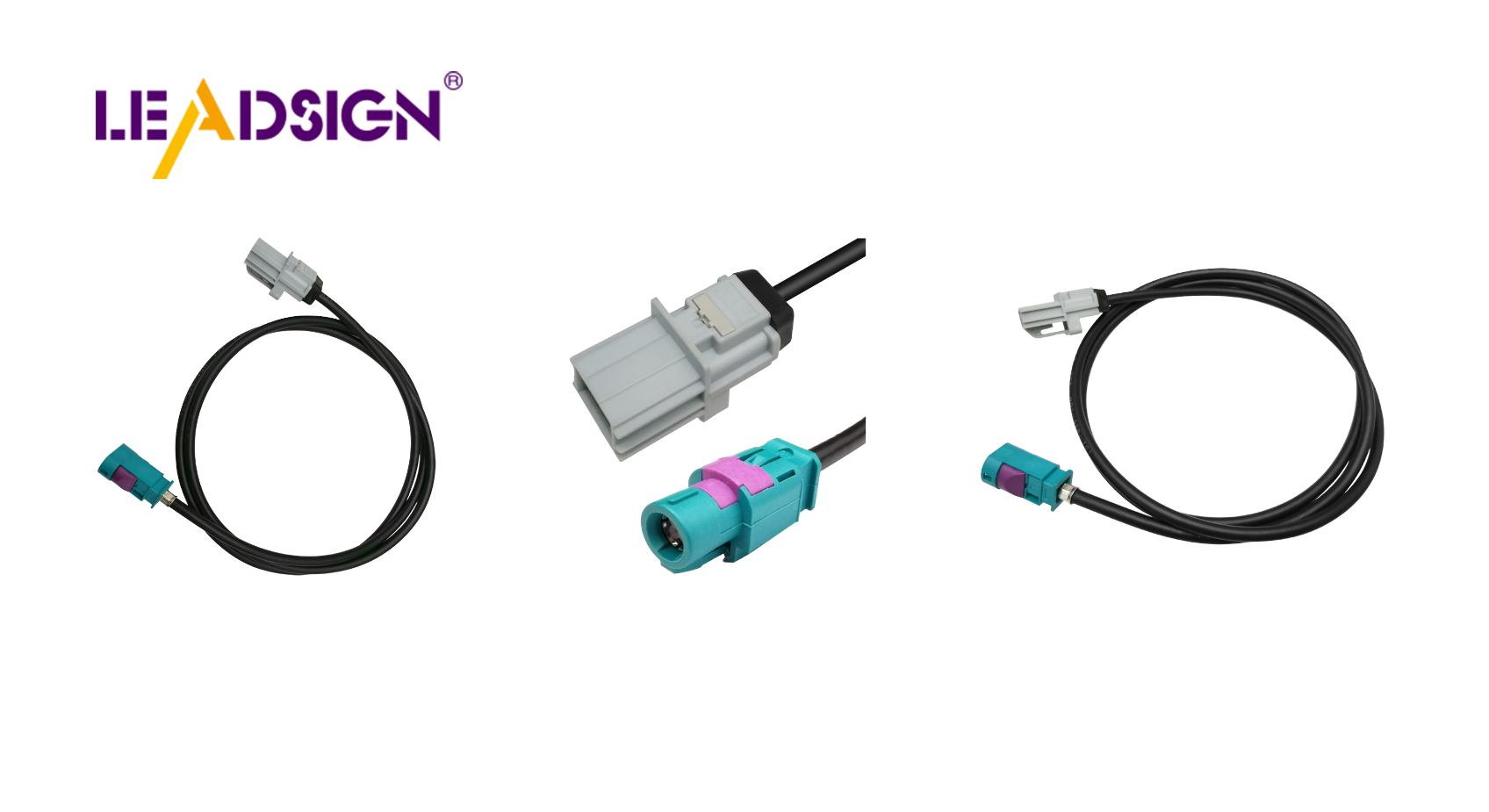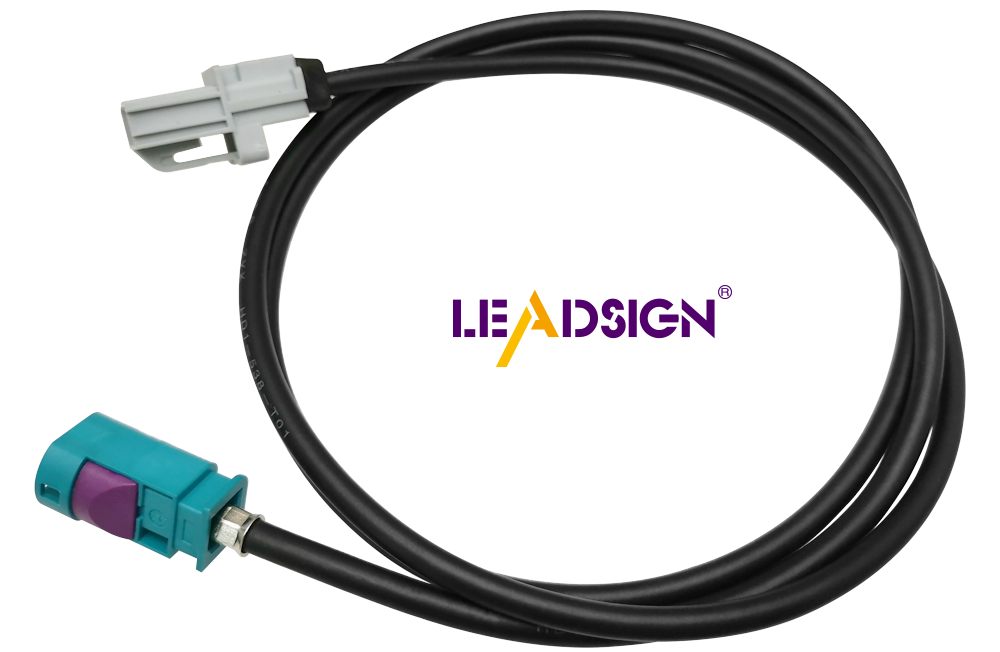How to Select Vehicle Connectors for Reliable Automotive Networking

Vehicle connectors are very important for car networks. They help your car's parts communicate with each other safely. Choosing the right vehicle connectors affects how well your car operates and maintains safety. Quality connectors keep out dust, water, and rust, which are common issues in vehicles. By adhering to global standards, manufacturers enhance their products' performance and reduce the likelihood of failures. This ensures your car runs smoothly and provides you with confidence while driving.
Key Takeaways
Choose vehicle connectors that match your car's voltage and current needs to ensure safe and efficient operation.
Consider the environmental conditions connectors will face; select those that are resistant to heat, cold, and moisture for long-lasting performance.
Understand the specific application requirements of your car systems, such as data transfer speed for infotainment or power handling for engine controls.
Prioritize connectors that are easy to install and fit well within your vehicle's existing systems to save time and prevent connection issues.
Test connectors for performance and durability using industry standards like SAE J2030 to ensure they can withstand real-world conditions.
Seek advice from automotive electronics experts or manufacturers to make informed decisions about the best connectors for your needs.
Adhering to industry standards not only enhances safety but also improves the overall reliability and performance of your vehicle.
Understanding Vehicle Connectors
Definition and Role
What are Vehicle Connectors?
Vehicle connectors are crucial parts of a car's electric system. They connect different parts so they can talk to each other. These connectors come in many shapes and sizes for specific uses in the car. They keep electricity and data flowing smoothly.
Importance in Automotive Systems
In cars, vehicle connectors are key for safety and reliability. They stop dust, water, and rust from messing with electric links. This protection keeps your car working well. Global rules help design these connectors to be strong and safe. Following these rules makes cars more reliable.
Functionality in Networking
How Connectors Facilitate Communication
Connectors help car parts talk by linking electronic pieces together. They move data and power between things like the engine control unit, radio, and sensors. This smooth communication helps all car parts work well together.
Impact on System Reliability
Your car's systems need good connectors to work reliably. Good quality connectors make sure everything runs smoothly without breaking down often. By using top-notch connectors, makers improve how well their products work, giving you a better car experience.
Types of Vehicle Connectors

Knowing about different vehicle connectors is very important. It helps make sure car networks work well. Each connector type does special jobs and has unique features. These features make them fit for different parts in a car's electric system.
Blade Connectors
Description and Uses
Blade connectors are flat metal pieces that fit into slots. They are used a lot in cars because they are simple and work well. You see them in fuse boxes where quick disconnects help.
Good and Bad Points
Good:
Easy to use, connect, and disconnect.
Stay connected well, so they don’t come apart by accident.
Cheap and easy to find.
Bad:
Only good for low power, not all car needs.
Can rust if not kept dry.
Bullet Connectors
Description and Uses
Bullet connectors look like small cylinders that fit into sockets. They are often used in car lights and other low-power places. Their shape makes them easy to connect or take apart, which is good for fixing things often.
Good and Bad Points
Good:
Simple design makes them quick to put on or take off.
Great for spots needing lots of disconnections.
Small size fits tight spaces.
Bad:
Not good for high power uses.
Might need extra sealing to keep water out.
Pin Connectors
Description and Uses
Pin connectors have pins that go into sockets. You find them in many car parts like sensors. They give a strong link for sending power and data signals.
Good and Bad Points
Good:
Can send both power and data.
Come in many shapes for different uses.
Give a strong connection.
Bad:
Harder to set up than blade or bullet types.
May need special tools to put together or take apart.
By learning about these vehicle connectors, you can choose the right one for your car needs. Each has its own strengths and weaknesses, so think about what you need when picking connectors.
Important Things to Think About for Vehicle Connectors
When picking vehicle connectors, think about key things. These help make sure they work well and last long.
Electrical Needs
Voltage and Current Needs
Check your car's voltage and current needs. Connectors should stay within safe limits. This stops energy waste and keeps them from getting too hot or breaking. Pick connectors that match your car's power needs for safe connections.
Fit with Car Systems
Make sure the connectors fit your car's systems. They should match the wires and parts already there. This stops bad connections or losing signals, which can mess up how your car works.
Weather Conditions
Heat and Cold Resistance
Connectors must work in all weather. They should handle temperatures from -55°C to +125°C like military ones do. This means they won't fail in hot or cold places.
Strong and Long-lasting
Connectors need to be strong because they face tough conditions. Choose ones made of good materials that keep out water and last long. This helps them work well over time without breaking.
Physical Considerations
Size and Fit
The size of connectors matters for a tight fit. Pick ones that fit well in your car's space. A good fit stops them from coming loose when driving.
Easy to Put In
Think about how easy it is to put in connectors. Easy-to-install ones save time during fixes or upkeep. Look for simple designs that don't need special tools.
By thinking about these important things, you can pick the right vehicle connectors for your car.
Specific Use Cases
Application-Specific Needs
When picking vehicle connectors, think about what you need them for. Different uses need special connector features to work best. For example, connectors in infotainment systems must send data fast. This helps devices talk smoothly. But, engine control units need connectors that handle lots of power and heat.
Key Points:
Data Transfer Needs: Infotainment needs fast data connectors.
Power Handling: Engine controls need strong power connectors.
Weather Resistance: Connectors should work in all weather.
Knowing these needs helps pick the right connectors for your car's systems.
Industry Rules and Standards
Following industry rules is key when choosing vehicle connectors. These rules make sure connectors are safe and work well. For instance, military-style ones handle tough conditions. They work from -55°C to +125°C. This means they won't fail in bad weather.
Important Rules:
Safety and Performance: Connectors must meet safety rules.
Weather Tolerance: Military ones handle extreme temperatures.
Durability: Connectors should last through many uses.
By following these standards, your car's connections stay safe and reliable. This also makes your car run better with fewer problems.
Practical Tips for Picking Vehicle Connectors
Choosing the right vehicle connectors needs careful thought. Here are some simple tips to help you pick the best ones.
Understanding Needs
Checking System Needs
Start by knowing what your car's system needs. Find out what jobs the connectors must do. For example, if your car uses fast data like in music systems, choose connectors that can handle it. Think about how much power they need and make sure they can handle your car's voltage and current.
Picking Important Features
After knowing the system needs, think about which features matter most. Look for connectors that are strong, easy to put in, and fit with your car now. Things like keeping water out and working in hot or cold places are important too. By focusing on these features, you can make sure the connectors work well for your car.
Testing Connectors
Doing Performance Tests
Before choosing, test how well the connectors work. These tests show if they can handle tough use. Rules like SAE J2030 give steps to check if connectors last long in real life. Make sure they pass these tests so they work well.
Making Sure They Fit
Fit is key when picking vehicle connectors. Ensure they match with your car's systems easily. Check if they fit with electric parts and special uses like charging systems. Rules like SAE J1772 make sure connectors fit well with electric cars and chargers for a good link.
Asking Experts
Getting Expert Help
If unsure, ask experts for help. Car electronics experts know which connectors are best for you. They guide you through tricky choices so you pick smartly.
Using Maker Help
Makers often offer help to pick right connectors. Use their guides, instructions, and support teams to learn more about connector abilities and ensure they meet your needs.
By following these simple tips, you can pick vehicle connectors that boost how well your car works. Remember to check what you need, test them out, and ask experts to make the best choice for your ride.
Choosing the right vehicle connectors is very important. They help your car work well and stay safe. Think about things like power needs, weather, and how they fit. This makes your car run better. Ask experts for advice and check resources like SAE J2030. This helps test if connectors are good in real life. By following these tips, you can pick connectors that make driving smoother and safer.
See Also
Maximizing Automotive Data Flow With Superior Connectors And Cables
Boosting Data Transfer: Significance Of Fast Automotive Connectors
Transforming Automotive Links: Benefits Of HFM Connectors

